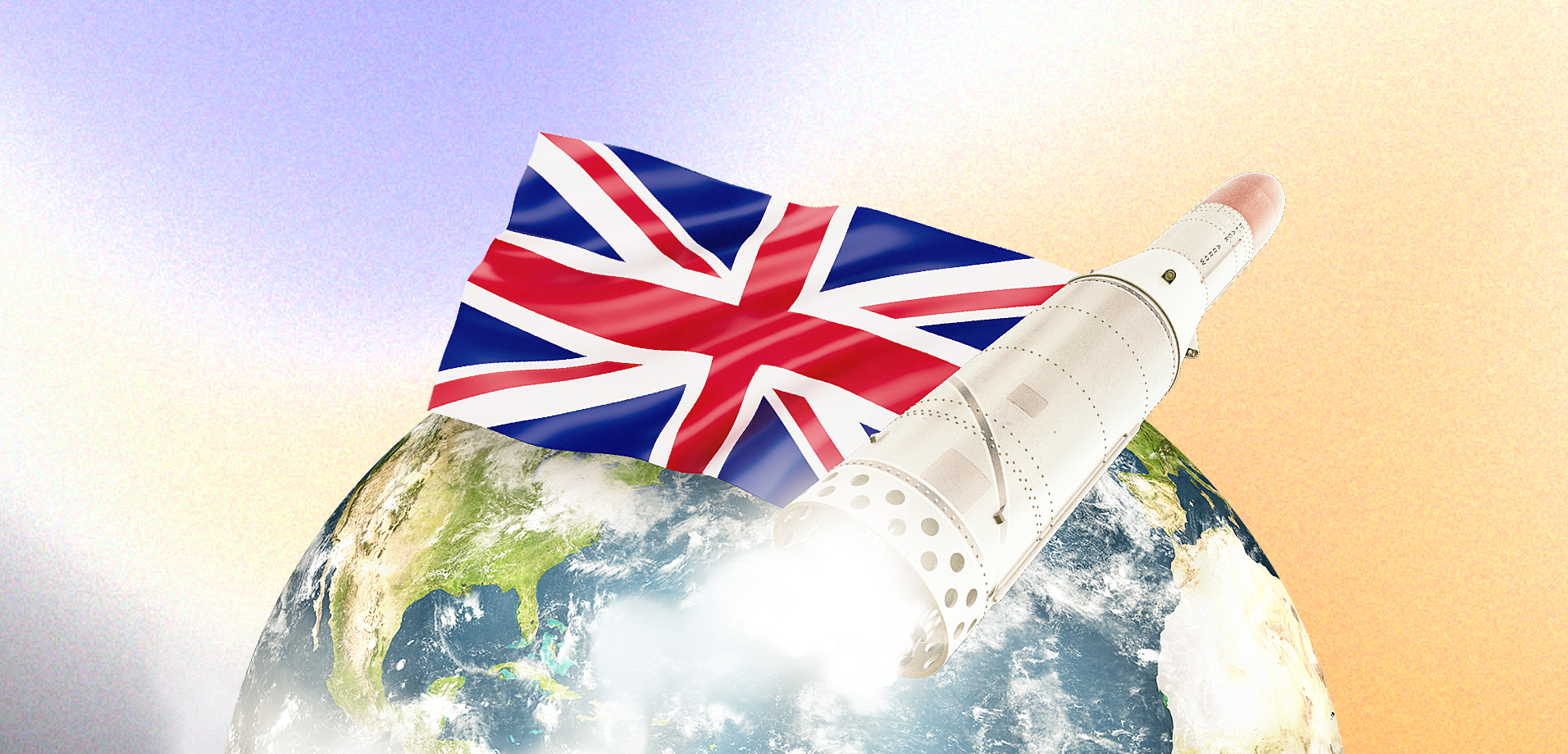UK Gov’t made history with its record investment in satellites
2nd Aug 2023
The UK Space Agency announced on 1st August that it is looking to develop a £160 million scheme to fund homegrown satellite technology – from revolutionizing 5G to developing constellations. The UK government hopes to become “global giants” of space communications through the scheme, dubbed the Connectivity in Low Earth Orbit scheme (CLEO). This is the largest the nation has ever invested in satellite technology. Science and Technology Secretary Michelle Donelan made the announcement.
Funding to focus on AI, constellations
CLEO is broken up into two parts, according to the press release from the UK government. The first is a grant of up to £100 million. The following £60 million comes from the European Space Agency’s (ESA) UK-backed Advanced Research in Telecommunications Systems (ARTES) programme, which has supported several UK satellite schemes in the past.
Through the grant, the UK government is looking for companies to develop “smarter satellites with better hardware”, including the use of AI to make data delivery faster and connect satellites together. Companies and organizations who receive a portion of the funding will also have access to the 5G testing facility in Harwell, Oxfordshire. Donelan stated that:
“Tackling the digital divide is at the heart of empowering our citizens wherever they live, and by investing in the vital research and development that CLEO would facilitate, we can level up our country while growing the economy through high-quality jobs … This proposed record investment is also potentially a huge opportunity to harness our reputation as a world leader in innovation and R&D investment, supporting leading UK businesses to deliver the next generation of satellites and positioning the UK as true space superpower.”
Growing need for satellites
The number of satellites in LEO is growing by the day and for good reason. The Russian invasion of Ukraine in February 2022 highlighted the importance of connectivity during a crisis. Not only did SpaceX’s Starlink donate its services to Ukraine amid the loss of connectivity from the war, but satellites also were relied upon for tracking troop movement. Satellite connectivity has also been a target since the beginning of the war, with Viasat blanked out in the first hours of the broad-scale offensive.
“Our intent is to catalyse investment, build on existing capabilities and meet the challenges associated with seizing a significant share of a fast-moving global market, by leveraging our growing national space programme and leading investments in commercial ESA programmes such as ARTES,” Harshbir Sangha, Missions and Capabilities Delivery Director at the UK Space Agency, said.
The announcement comes shortly after the UK’s National Space Council was reinstated in late July. The Council hopes to become a “true space superpower”.
Satellite funding pool keeps growing
The UK Space Agency (UKSA) has invested heavily in satellite technology in 2023 already. CLEO follows the £15 million fund announced in October 2022, calling for ideas to revolutionize the satellite industry within the UK. Then, in January 2023, the government unveiled a further £50 million which would fund industry projects focused also on satellite constellations and corresponding ground systems. The two were also funded by ESA’s ARTES.
While the UK government invested £400 million into OneWeb to help save it from bankruptcy in 2020, CLEO is focused on generating direct benefits for the nation. OneWeb is set to announce where it will manufacture its Gen 2 satellites, and in a space strategy and satellite infrastructure report released by the Science and Technology Committee in March, the government said it hopes to “obtain assurances” that they will be built in the UK.
“Decisions on the design and development of Gen2 are ultimately matters for OneWeb. The Government’s special share rights of first preference for UK procurement only apply on a commercially competitive basis,” the report said. “This means we could not compel OneWeb to locate all elements of the manufacturing process for its Gen2 constellation in the UK where it does not make commercial sense.”
While it is still unclear where the Gen2 constellation will be built, OneWeb’s technology demonstrator which was launched in May, called the JoeySat, was manufactured in the UK with the help of £52 million from the UKSA.







Thank you for your comment! It will be visible on the site after moderation.